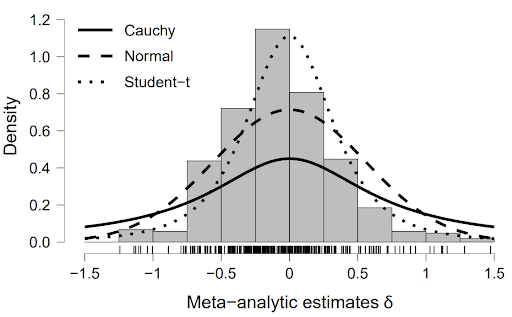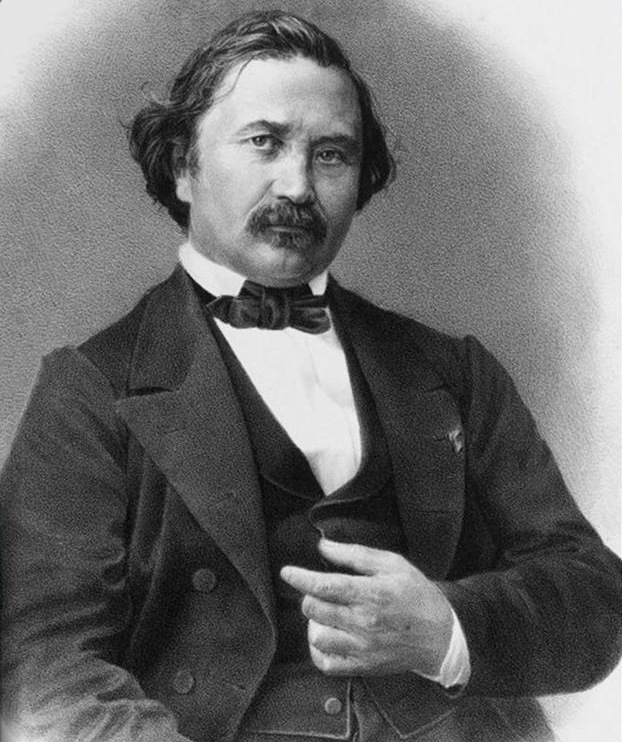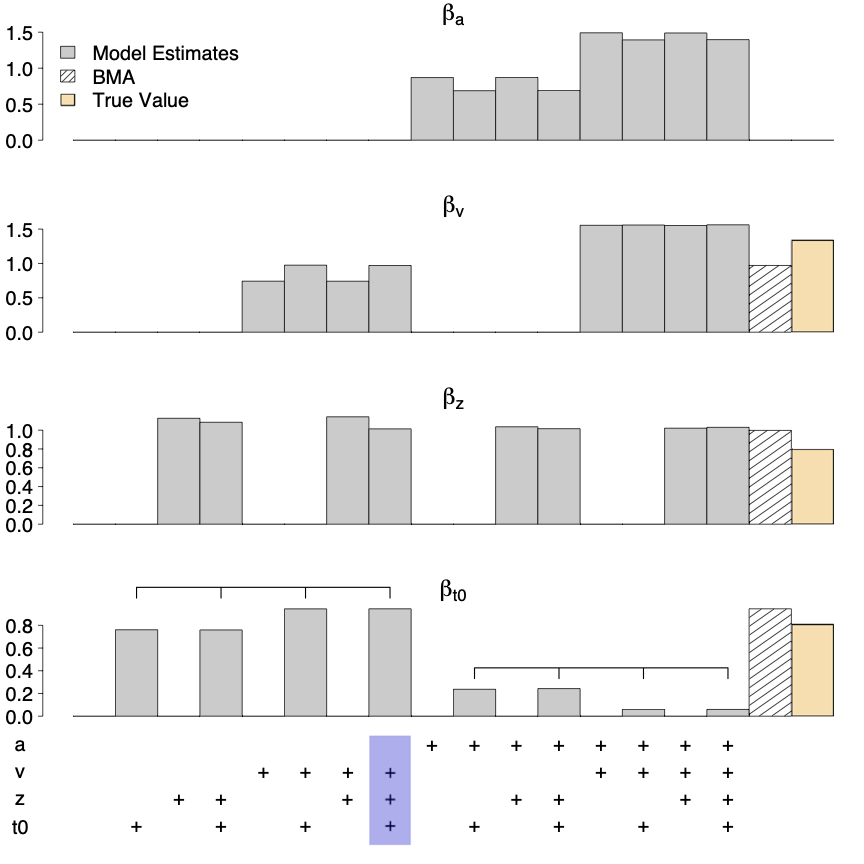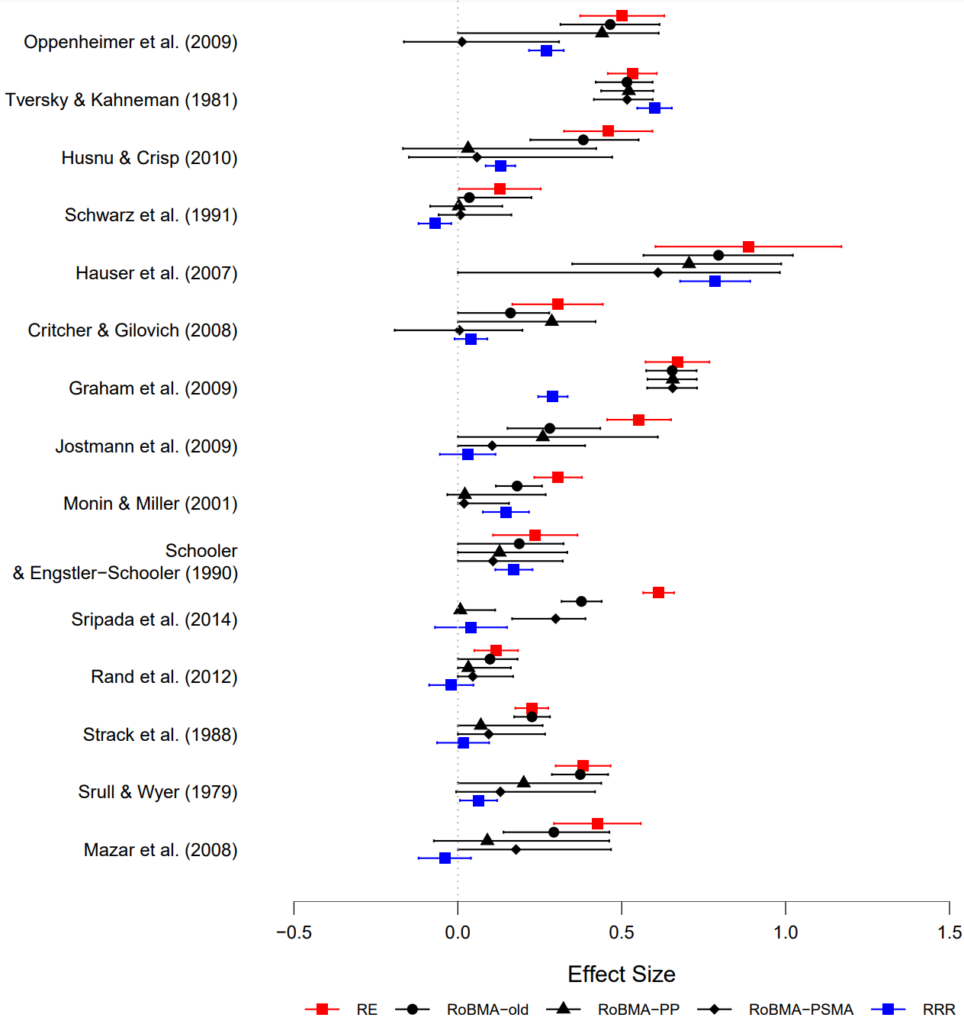Bayesian Model-Averaged Meta-Analysis in Medicine

This post is a synopsis of Bartoš, F., Gronau, Q. F., Timmers, B., Otte, W. M., Ly, A., & Wagenmakers, E. J. (2021). Bayesian model‐averaged meta‐analysis in medicine. Statistics in Medicine. The article is available at https://doi.org/10.1002/sim.9170 (open-access). Abstract We outline a Bayesian model-averaged (BMA) meta-analysis for standardized mean differences in order to quantify evidence for both treatment effectiveness…
read more




